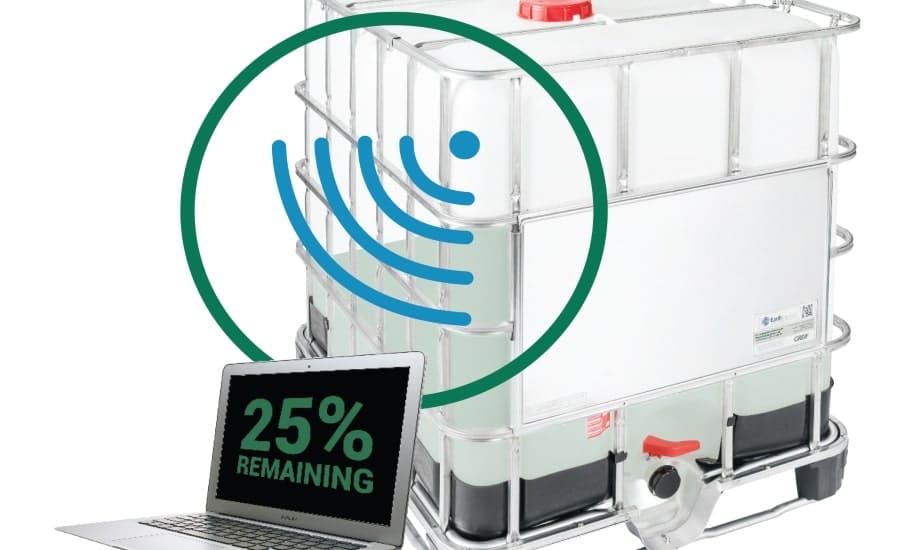- Sobre nossa empresa
- Sobre o nosso relatório
- Estratégias de Sustentabilidade
- Metas e Desempenho
- Índices de relatórios ESG
- Relatório de downloads
Why Innovation Matters
Our approach to innovation enables Greif to advance sustainable packaging and circular economy principles. As we continue to innovate, we reduce our footprint and support our customers’ desire for safer, lighter weight products and reduced transportation costs. We analyze our entire value chain—from the extraction of raw materials to our products’ end-of-life—to find opportunities to improve our products and processes. This strategy is not only the right thing to do, but provides us a competitive advantage.
Governança
Our innovation efforts focus on transforming our product portfolio by developing sustainable packaging solutions based on a set of eight environmental, social and financial sustainability criteria. Through internally-initiated solutions and collaboration with customers, our innovation efforts focus on dematerialization—producing products that are lighter weight, utilize less virgin raw materials and more recycled content—and green material substitution—identifying safer materials to produce our products, including bio-based materials—while continuing to meet performance requirements. Innovation is managed by our Global Innovation Committee, comprised of representatives from each of Greif’s business units and is responsible for driving collaboration and idea sharing across and within business units. The new committee structure facilitates idea sharing and collaboration across the enterprise, which allows ideas to serve and influence multiple business units. The committee updates Greif’s Executive Leadership Team (ELT) quarterly providing progress on innovation priorities and industry megatrends that may influence investment and overall company strategy in the future. Innovation is managed by a process that evaluates and prioritizes projects based on potential financial return, sustainability impacts and overall value to Greif and our customers.
In 2019, the Innovation Committee published the inaugural “Greif Global Innovation Trends Report” that identified six trends that are strategically relevant to Greif:
- Companies are Becoming More Environmentally Friendly
- Digitization & Automation of Manufacturing
- Digitization of Supply Chain & Logistics
- Digitization of Enterprise Purchasing & B2B Selling
- Workforce Shortages, Surpluses & Skill Gaps
- Growth Opportunities Increasing in Emerging Markets
In 2020, we began using these insights to make strategic decisions in the organization, including opportunities to develop 100 percent recycled drums and optimizing material use in intermediate bulk containers (IBC). Due to the increased pressure on companies to become more environmentally friendly, Greif has increased focus on post-consumer resin (PCR) products and reconditioning, more specifically, growth of its IBC reconditioning network. In reference to the third trend, digitization of supply chain and logistics, Greif credits digitization as a key enabler of sustainability improvements like industrial Internet of Things (IIoT), supply chain optimization, and marketing-related emissions reductions.
$362 M
Revenue from Sustainability-tagged products
In 2020, Greif had $361,984,251 in revenue from sustainability-tagged products.
The Greif Green Tool continues to be an important tool for us to communicate our innovations and sustainable products to our customers. In 2020, we continued to update the tool with our latest product information, ensuring data and product classifications are as up to date as possible. Going forward, we will continue to keep data in the tool as up to date as possible and all new product launches will be analyzed and added to our sustainable product portfolio if they meet the criteria. In 2019, Greif used the Green Tool to collaborate with a customer in Italy to identify more sustainable products for them. The analysis helped identify four projects to present to the customer – transitioning to lighter-weight jerrycans, increasing use of products with high percentages of PCR, create and coordinate closed loop packaging in Europe and test Greif’s GCUBE Track technology to optimize logistics and supply chain. The customer implemented two of these projects and will continue to evaluate the remaining for implementation in 2021.
Since its inception, the Green Tool has been used by 65 customers to evaluate the GHG emissions associated with different shipping scenarios. In 2020 we continued to engage with our customers using the Greif Green Tool providing more complex analyses in support of lowering their carbon footprint through packaging solutions. In 2020, Greif had $361,984,251 in revenue from sustainability-tagged products.
Our innovation priorities vary based on the specific needs of each of our business units and needs of the customers they serve. In 2020, our Flexible Products & Services (FPS) business continued advancing multiple sustainable product projects to reduce material use that, collectively, are estimated to generate 380 tons of material savings annually. The business unit also worked with our stakeholders to maintain our position as a market leader in food safety and meet emerging compliance requirements as part of our Food Safety Initiative.
Our Food Safety Initiative has also progressed in our Global Industrial Packaging (GIP) business. In 2019, we formalized our integrated ISO-certified food manufacturing practice program, which involves integrating basic food safety procedures into our quality management system. At the end of 2020, 90 percent of our facilities were compliant with the new standards. All facilities are planned to be compliant by the end of 2021 ultimately becoming the standard quality system used across GIP North America.
The acquisition and integration of Caraustar into our Paper Packaging & Services (PPS) operations has advanced innovation within the business unit even further. With their collaboration and capabilities, we have increased our ability to offer products made from 100 percent recycled fiber and products that are recyclable or compostable, including other Greif products such as fibre drums, environmentally smart (ES) natural paperboard and flame retardant floor board. These innovations replace over 20,000 tons of single-use plastic packaging annually. We are also proud of our automation and digital printing abilities both of which make our manufacturing operations more efficient and significantly reduce waste.
Our innovation efforts also address regionally specific needs and can go beyond our products. Greif’s Latin American (LATAM) offices are encouraging innovation in their working environment. In 2019, the team began hosting interactive and in-person innovation workshops to teach our colleagues about innovation and brainstorm not just product and process ideas, but innovations we can bring to our working environment to be a better and more attractive employer for current and future colleagues. In 2020, our LATAM team began conducting bi-weekly reviews with members of the innovation team to spread innovative practices that are already in place, identify new innovation opportunities and discuss non-product innovation opportunities to better serve our customers.
In 2021 we will continue to focus on developing our highest priority innovation initiatives, including new barrier technologies for plastics, jerrycan designs, knock down drum offerings across specific markets in LATAM, anti-counterfeiting measures and Internet of Things technologies.
Goals & Progress
Our innovation priorities continue to support our 2025 supply chain goals to reduce raw materials/logistics costs used to produce current product offerings by one percent and move from non-green to green material sourcing if it is economically feasible and doing so provides high quality products to our customers. In 2021, we will continue to analyze new and innovative products through research and development and engage our customers to inform our innovation priorities.
*Global revenue from sustainability-tagged products for Greif’s Global Industrial Packaging (GIP) business unit, including life cycle services
Laser Markings on IBCs
Greif Sweden/Nordic is the first in the market to replace ink jet markings with laser markings on Intermediate Bulk Containers (IBCs), reducing the use of solvent-based ink during production. By eliminating the use of solvents and ink, the production environment is cleaner and the weight of the IBC is reduced by one kilogram, a 6.7 percent reduction of resin. We believe this innovation will set a new standard for markings on IBCs.
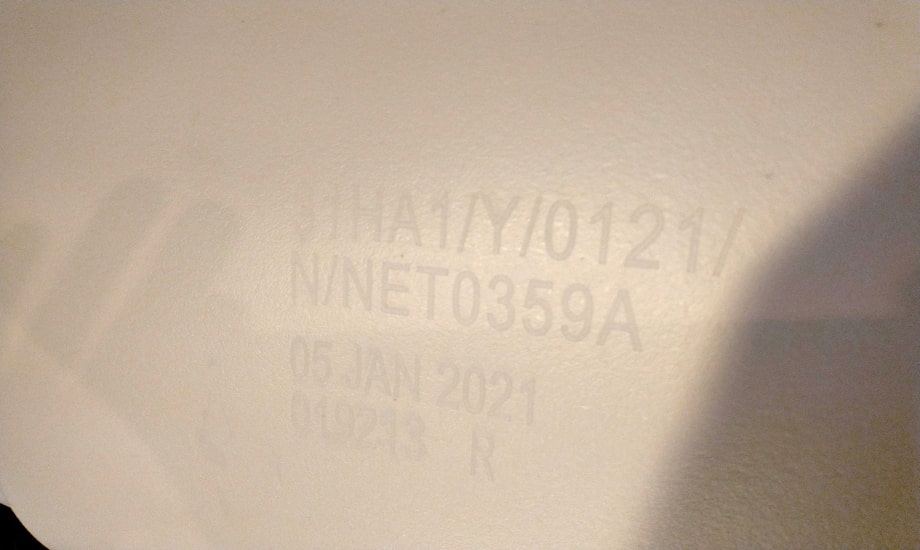
Knock Down Drums (KDD) for Remote Locations
Greif’s Knock Down Drums (KDD) offer the optimal sustainable solution for transporting steel drums to remote locations. Semi-finished drum parts are shipped and assembled locally on site with minimum people and equipment. The unique concept allows transportation of up to 1,176 KDDs in a 20’ sea container compared to 80 full finished drums, saving valuable space, optimizing transport costs and minimizing our customers' carbon footprint during longer transit times. Drums are delivered directly to our customers' filling station helping to improve efficiencies with minimum stock and less manual handling.
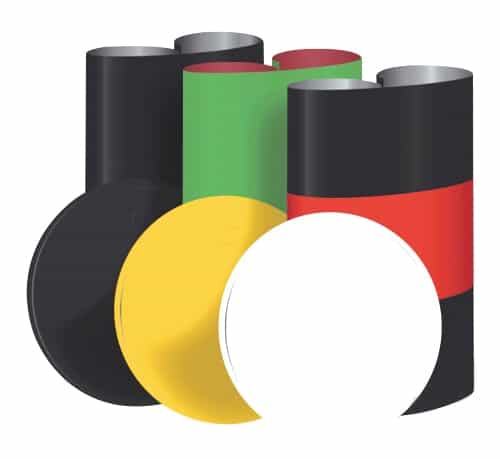
Lightweighting and Innovating the Shape of Jerrycans
Greif manufactured our first lighter weight 20 and 25 liter jerrycan models in 2015. This design is 15 percent lighter than the previous model while maintaining performance specifications of the previous design. Due to the reduced weight, the new jerrycans reduce materials and energy used in production by up to 15 percent and have a reduced emissions impact. In 2019, we expanded this product line to include sizes 16 and 18 liters. We produce now our lighter jerrycans in Italy, Israel, Sweden, and Singapore. In Latin America, Greif designed a novel plastic drum innovation using a facetted side-wall approach. This improvement removed up to 14 percent of the resin while maintaining current performance. Due to the change in shape, this new side-wall approach optimized pallet utilization, allowing more drums to be transported in the same space. This facetted drum is more sustainable in both reducing natural resource consumption during manufacture and transportation.
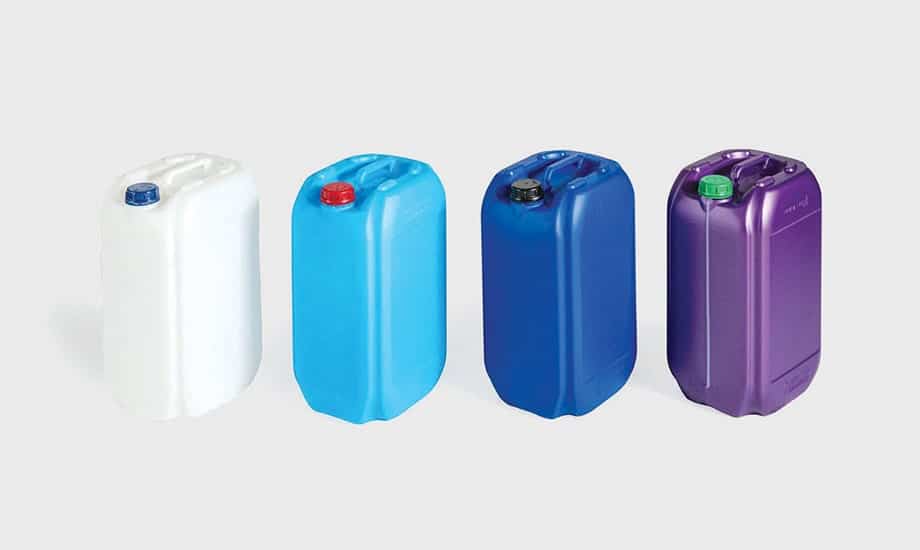
Environmentally Smart (ES) Natural Paperboard
Greif released ES Natural to fulfill a customer need for more sustainable paperboard products. An advanced cleaning technology is used to produce a low density, 100 percent recycled fiber paperboard. It is FSC®, SFI®, PEFC™ Certified, FDA® compliant for dry food contact, and suitable for freezer applications. The smooth brown print surface maintains integrity during the freeze/thaw cycle and is ideal for folding cartons or other packaging options where a natural, brown color is desired.
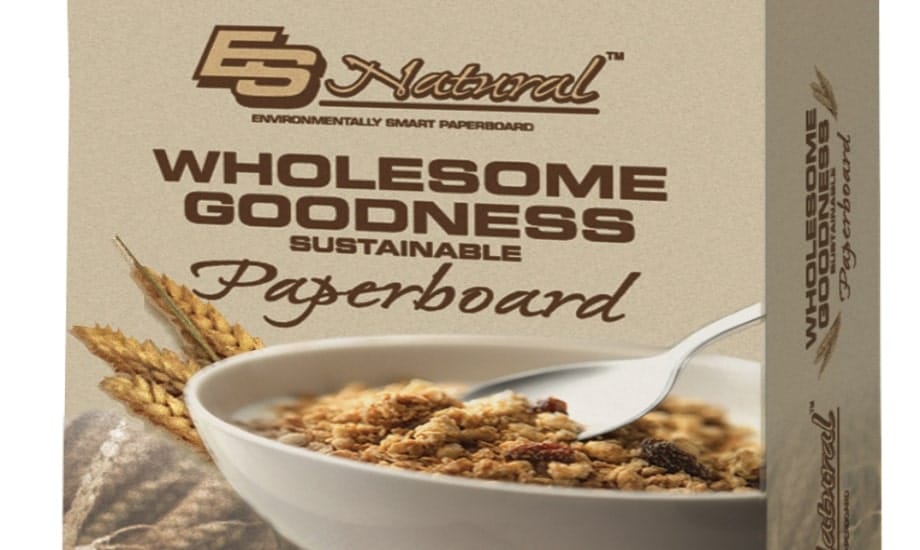
100 Percent Recycled Paper for Fibre Drums
Traditionally, Greif uses virgin or a virgin/recycled mix of paper for its fibre drum products. Historically this was because fully recycled paper was not strong enough to meet the stringent regulatory performance demands of our customers. Recently, Greif paper scientists developed a specialized formulation for drum paper from 100 percent recycled paper. Using recycled fiber in our drums saves natural resources and eliminates waste to landfill by supplanting virgin raw materials with recycled products. Greif is in the process of certifying this new paper and plans to fully convert a portion of its fibre drum volume in 2021.
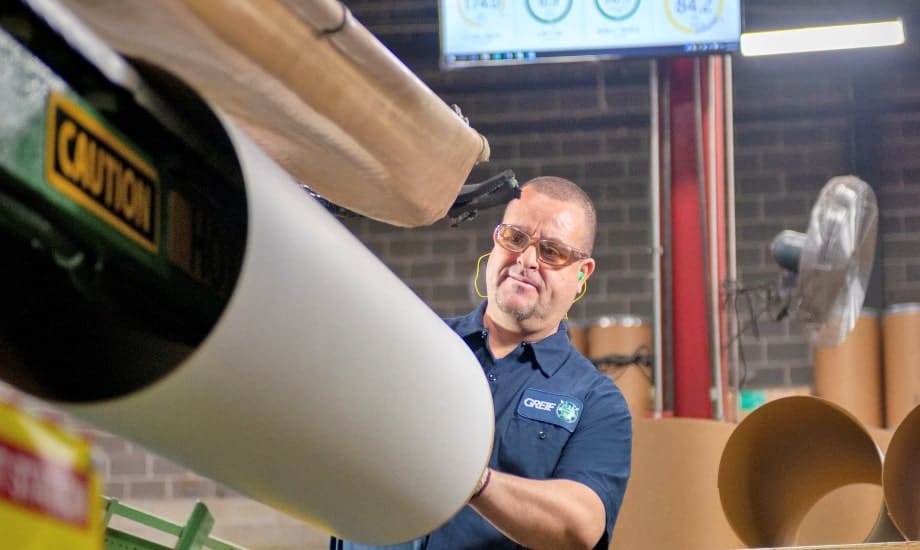
A Lighter Approach
n order to respond to customer demands to remove weight and optimize transportation costs, our Greif Latin America colleagues designed a novel plastic drum innovation using a never seen before facetted side-wall approach. This improvement removed up to 14 percent of the resin in the drum while maintaining performance. Not only does the design reduce raw material usage, it also optimized pallet utilization due to its unique configuration which allows more drums to be transported in the same space as the legacy design. The faceted drum is a more sustainable solution both in reducing natural resource consumption and lowering fossil fuel usage and CO2 emissions during transportation.
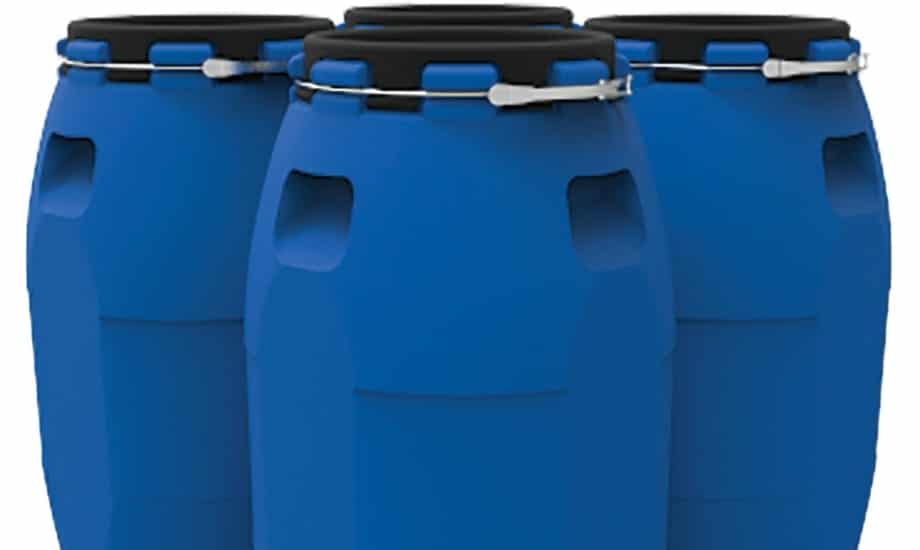
Better Branding with Drum 360
At Greif, we now have the ability to print high-resolution images directly onto steel drums using the latest print technologies. This capability is the direct result of an investment designed to meet the needs of customers who are looking for ways to differentiate their products and generate impactful packaging design to support the price point of high value products. In addition to adding value for our customers, this process eliminated the need for a standard gas oven, using LED-based UV curing during the production process. This new process saves 0.5 kilograms CO2 per drum. Greif strategically placed the new Drum 360 technology in plants close to customers who use this new technology, in the United Kingdom, Poland, Czech Republic, and France.
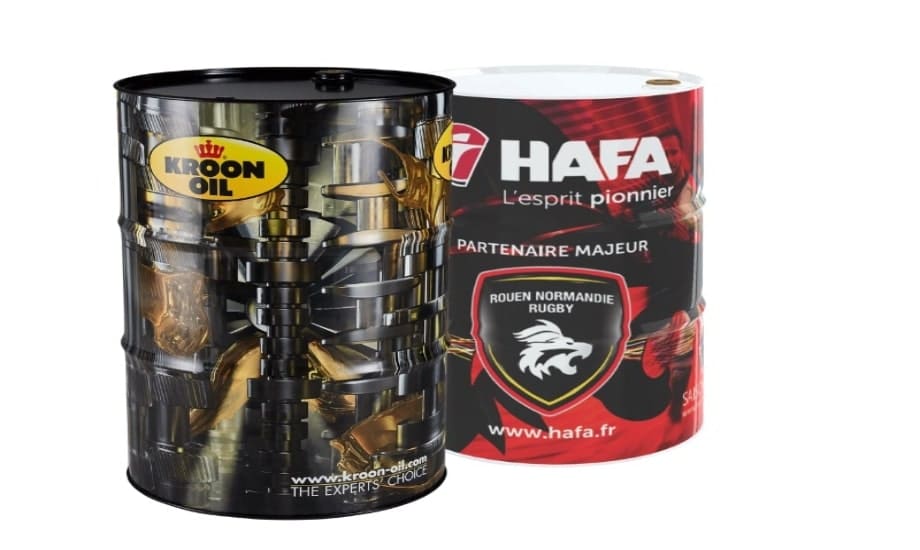
GCUBE Connect: Real-time Tracking for your IBCs
Greif’s GCUBE Connect solution, launched at LogiChem virtual conference, gives real time tracking information about a customer’s IBC through the application of an Internet of Things-based device. A customer-based dashboard displays in real time where an IBC is sited, the level of the filled product and the environmental temperature. This dashboard allows customers to plan in advance for deliveries of filled product and the arrival of new IBCS, as well as schedule collections of empty IBCs. GCUBE Connect also supports better management of residue in the IBCs. Each IBC that enters the facility is automatically weighed to determine how much residue is in the container to determine how it will be treated. This innovation pairs well with Greif France’s ability to pick up and drop off reconditioned IBCs from any site along a customer’s supply chain, as opposed to one single location. Together, they simplify the logistics for the customer and increase transparency.
